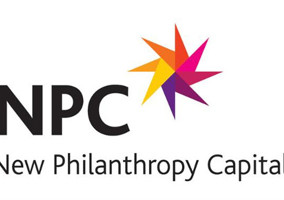“Charities collectively are not delivering their full potential as sources of belonging and cohesion,'' Baroness Stowell, chair of the Charity Commission, has said.
Speaking at the regulator's annual public meeting in Bristol, she said “charities no longer have the public's benefit of the doubt”.
“We live in a country and in a time marked by division and tension,” she said. The Brexit debate has “laid bare fundamental divides that transcend old right and left differences”, and charities should be the “force” healing divisions in society.
The Baroness claimed “charities are not just measured in the worthiness of their cause but measured also in the way that cause is furthered by the behaviours and attitudes displayed”.
“Charity is about the means not just the ends,” she added.
“People no longer automatically assume that charitable organisations reflect or share their understanding of charitable endeavour and behaviour. I believe we can and must change that.”
Holding charities to account against public expectations is our ‘DNA’
Stowell and the Commission’s chief executive, Helen Stephenson, said the regulator's role was to hold charities to account on “public expectation”.
Although the work of charities is “vital” and “immeasurable”, Stephenson said “the commission's role is to regulate in the public interest”.
She said the regulator's purpose to inspire public trust “informs everything that we do in the Commission - it is the lens through which all of our work is focused - it is our DNA”.
Stowell added its role is to “help the public see whether or not a charity is behaving and thinking in an authentically charitable way, distinct from the attitudes that might prevail in a commercial organisation that is focused on growth and expansion.”
“One theme is already emerging quite clearly and that is the crucial importance of openness,” Stowell said.
“What our data suggests is when people feel a charity has brought the shutters down, doubts and questions about the motives of those running the charity can begin to fester.
“Conversely, where charities respond openly and genuinely to complaints they receive, they can often reassure the complainant about the charity’s probity, even if they cannot provide the specific remedy the complainant had been hoping for,” she added.
In response to an audience question, Stephenson said that the Commission was legally unable to remove charities from the register as a sanction, even when issues around transparency and other controversy arose.
The CEO said: “If something is legally charitable, we have to put it on the register. Similarly we are not able to take charities off the register as a form of sanction”.
She added: “Whether our powers are in line with what the public would expect is something we think we should consider”.
|
Related articles












